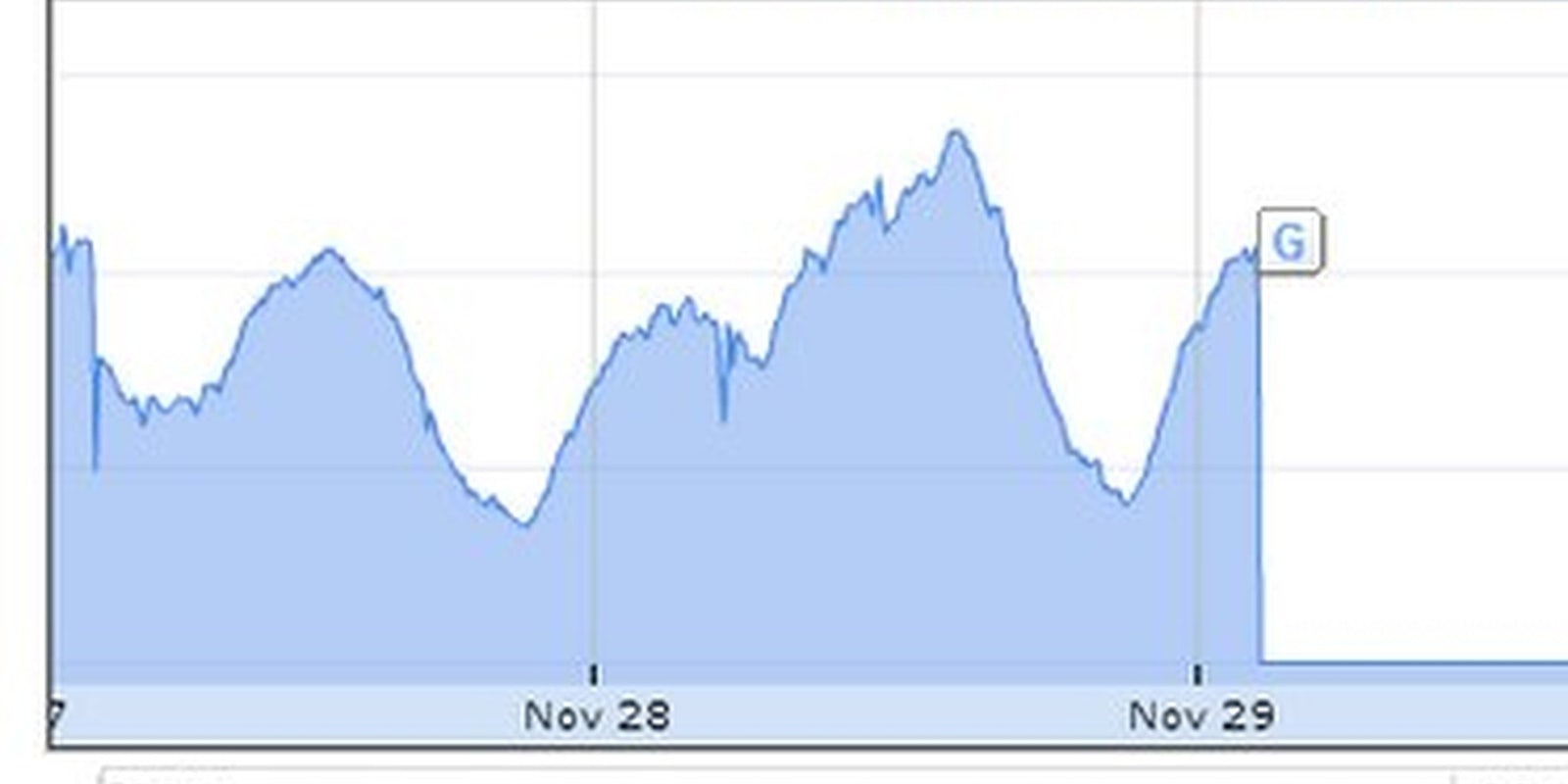After a two-day blackout, Syria’s Internet was restored on Saturday. Google’s Transparency Report shows a sudden reconnection of the majority of the country’s ISPs on that day.
In a post on the Rensys blog, the Internet intelligence company reports “a largely complete restoration of the Syrian Internet.”
Speculation has been rife as to what caused the outage, but given the pattern of regional tyrannies in the past and who has access to the nodes connecting Syria to the global Internet, it is likely the government is to blame.
Cloud security service Cloudflare, while admitting it is impossible to be wholly certain, believes this is the case.
“While we cannot know for sure,” they admit, “our network team estimates that Syria likely has a small number of edge routers. All the edge routers are controlled by Syrian Telecommunications. The systematic way in which routes were withdrawn suggests that this was done through updates in router configurations, not through a physical failure or cable cut.”
Rensys is more circumspect.
“The restoration was achieved just as quickly and neatly as the outage: like a switch being thrown. Does that mean that we believe the government (or the opposition) threw the switch? Frankly, the data available just don’t support attribution at this point, despite all the speculation.
“The only way we’re going to know for sure will be to wait for a resolution to the conflict, at which point we will hear from the people who know for sure: the network engineers in Syria. We hope they’re safe and we look forward to hearing their story firsthand.”
The Syrian government insists publicly that the rebels have cut the country’s Internet connection. Given that Internet access was down over the entire country, all four cables connecting Syria to the global network would have to have been cut. Three of the four are submarine cables.
“That is unlikely to have happened.”
Cloudflare, among others, register the performance of the Syrian Internet post-shutdown at or near equivalent levels before the blackout.
Syrian exile Ammar Abdulhamid once told a reporter that the likelihood of a widespread massacre, like that in Hama by the current leader’s father in 1982, which killed up to 40,000 people, is less likely in a world where media has been so widely distributed. Even when a country shuts down its connection to the Internet, information still has a way of making its way out, if at a much reduced rate.
The Electronic Frontier Foundation’s DeepLinks blog reported on Friday, “Dlshad Othman, a Syrian activist and IT specialist, estimates that the number of people online in Syria at the moment is probably ‘less than 1,000,’ yet Global Voices reports that videos of protests are still finding their way online.”
Reuters reported that the United States government claimed it had a hand in maintaining that connection by covertly providing rebels with computers, phones and cameras.
“We’ve provided some 2,000 communications kits, pieces of equipment, since this effort began,” State Department spokesperson Victoria Nuland told the news agency. “They are all designed to be independent from and able to circumvent the Syrian domestic network precisely for the reason of keeping them safe, keeping them secure from regime tampering, from regime listening, from regime interruption.”
Image via Google
